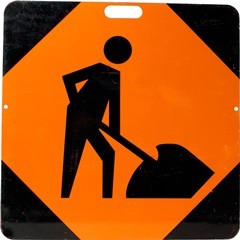 Reference checking is often viewed as a routine matter. But not for the company or the job seeker when certain information is shared.
Reference checking is often viewed as a routine matter. But not for the company or the job seeker when certain information is shared.
Allison & Taylor, a company engaged in the reference business for more than 30 years, offers the following:
It’s an all-to familiar scenario – a job seeker with strong employment credentials has interviewed well, and received positive feedback from a prospective employer. After being asked to provide a list of references, communications suddenly stop; no explanation is provided, and the job seeker’s attempts to follow up elicit a vague “we decided to go in a different direction” statement.
What is happening here?
While there may be multiple reasons why a prospective employer has suddenly lost interest, one possibility is that a reference they’ve contacted has offered negative commentary about the job seeker. When this happens, the employer begins to see the job seeker as an employment risk, and it’s highly likely that the entire process will stutter to a stop.
The employment process can be tricky, and there are three common ways that an unfavorable reference can derail even the most promising job prospect:
- The Supervisor Dilemma – A potential employer will often ask, “May we contact your former supervisor?” If they are told “no”, it sends up a red flag and makes the employer wonder what a job seeker has to hide. If the contact is permitted, a job seeker runs the risk that the reference may offer some negative feedback – supervisors often give a mix of favorable and unfavorable commentary about their former subordinates.
- HR’s Influence – Human resources, which most former employees feel is a “safe” reference bet, can actually be quite problematic. While company policy may not allow them to provide damaging commentary, they may indicate that the employee is not eligible for rehire or suggest that the separation was due to involuntary, unfavorable circumstances.
- “Do Not Hire” – Still another possibility is that a job seeker is on a former employer’s “do not hire” list. This could be due to any number of reasons, including a failed background check, minor corporate infractions or resume fraud. While most U.S. hiring managers rarely admit that they keep such records, they do exist.
Allison & Taylor reports that approximately half of all reference checks it conducts reveal negative input from the reference.

 While Indiana’s unemployment dipped to 3.6% last month, Utah is a full half point lower.
While Indiana’s unemployment dipped to 3.6% last month, Utah is a full half point lower.  Allison & Taylor estimates that approximately 50% of all reference checks it conducts reflect some degree of employer negativity.
Allison & Taylor estimates that approximately 50% of all reference checks it conducts reflect some degree of employer negativity. As the economy has improved, unemployment rates have fallen, and employees have become more demanding. Manta polled small business owners about employee benefits and found that they are feeling the pinch — mostly from prospective employees — about benefits plans. According to the poll, about 47% of potential employees put the pressure on about benefits. Employers are also feeling the pinch from their competitors’ plans.
As the economy has improved, unemployment rates have fallen, and employees have become more demanding. Manta polled small business owners about employee benefits and found that they are feeling the pinch — mostly from prospective employees — about benefits plans. According to the poll, about 47% of potential employees put the pressure on about benefits. Employers are also feeling the pinch from their competitors’ plans.
 There are still more than one million veterans looking for full-time jobs with tens of thousands of soldiers leaving the military in 2016. Many employers aren’t getting the right information and networking help they need to successfully hire veterans, Reservists and National Guard members.
There are still more than one million veterans looking for full-time jobs with tens of thousands of soldiers leaving the military in 2016. Many employers aren’t getting the right information and networking help they need to successfully hire veterans, Reservists and National Guard members. Born in 1993, I’m pretty certain I’m considered a member of the sometimes disreputable and misunderstood Millennial generation. As more Millennials are entering the workforce, some of their workplace habits have been under scrutiny, as coworkers and managers consider Millennials to be different from previous generations. I was surprised to run into
Born in 1993, I’m pretty certain I’m considered a member of the sometimes disreputable and misunderstood Millennial generation. As more Millennials are entering the workforce, some of their workplace habits have been under scrutiny, as coworkers and managers consider Millennials to be different from previous generations. I was surprised to run into  Hiring Our Heroes job fairs, a program of the U.S. Chamber of Commerce Foundation, continue to make a difference in local communities. The mission is to help veterans and spouses earn meaningful private sector employment.
Hiring Our Heroes job fairs, a program of the U.S. Chamber of Commerce Foundation, continue to make a difference in local communities. The mission is to help veterans and spouses earn meaningful private sector employment. There’s been some buzz lately in the social media and human resources arenas about the practice of employers
There’s been some buzz lately in the social media and human resources arenas about the practice of employers